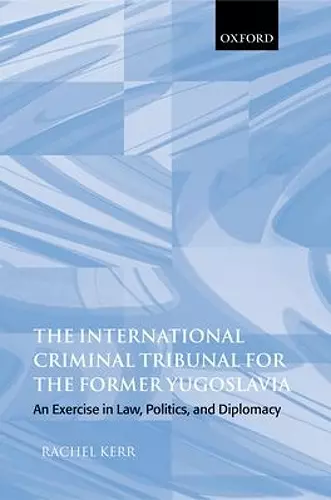The International Criminal Tribunal for the Former Yugoslavia
An Exercise in Law, Politics, and Diplomacy
Format:Hardback
Publisher:Oxford University Press
Published:15th Jan '04
Currently unavailable, and unfortunately no date known when it will be back

On 25 May 1993 the United Nations Security Council took the extraordinary and unprecedented step of deciding to establish the International Criminal Tribunal for the Former Yugoslavia (ICTY) as a mechanism for the restoration and maintenance of international peace and security. This was an extremely significant innovation in the use of mandatory enforcement powers by the Security Council, and the manifestation of an explicit link between peace and justice - politics and law. The establishment of ad hoc tribunals for the former Yugoslavia and Rwanda was followed by the adoption of the Rome Statute of the ICC in July 1998, the arrest of General Augusto Pinochet in London in October 1998, and the establishment of ad hoc tribunals in Cambodia, Sierra Leone, and East Timor, all of which pointed to an emerging norm of international criminal justice. The key to understanding this is the relationship between the political mandate and the judicial function. The Tribunal was established as a tool of politics, but it was a judicial, not a political tool. This book provides a systematic examination of the Tribunal, what it is, why it was established, how it functions, and where its significance lies. The central question is whether an international judicial institution, such as the Tribunal, can operate in a highly politicized context and fulfill an explicit political purpose, without the judicial process becoming politicized. Separate chapters chart the origins of the court, the process of establishment, jurisdiction, procedure, state co-operation, including obtaining custody of accused, and the role and function of the Chief Prosecutor. This last element is the key to the Tribunal's success in maintaining a delicate balancing act so that its external political function does not impinge on its impartial judicial status, and instead enhances its effectiveness. The book concludes with an assessment of the conduct of the Milosevic case to date.
"This Book is a detailed account of the establishment and the early years or the International Criminal Tribunal for the Former Yugolslavia."
ISBN: 9780199263059
Dimensions: 241mm x 163mm x 11mm
Weight: 536g
248 pages